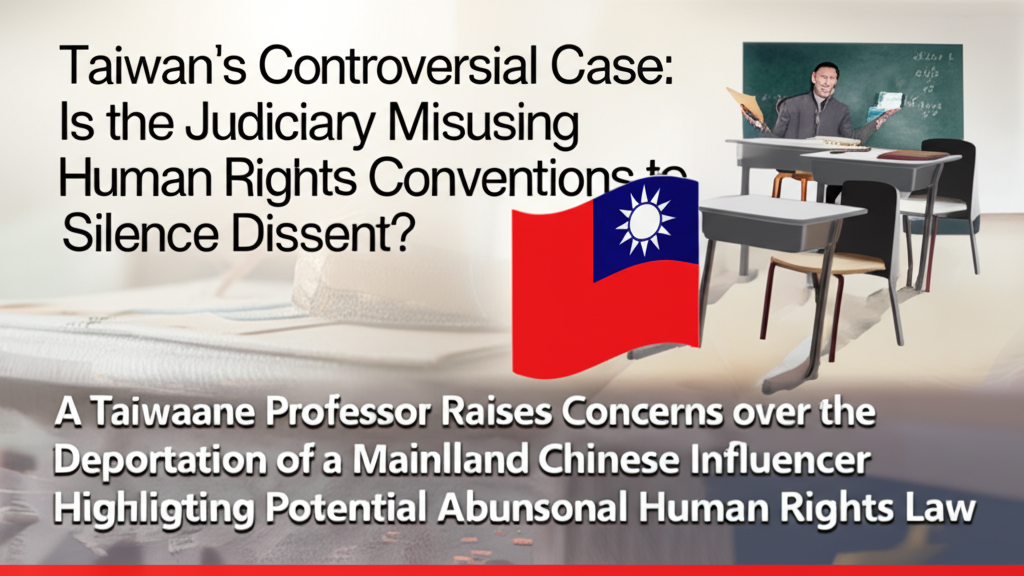Taiwan's Controversial Case: Is the Judiciary Misusing Human Rights Conventions to Silence Dissent?
A Taiwanese Professor Raises Concerns over the Deportation of a Mainland Chinese Influencer, Highlighting Potential Abuses of International Human Rights Law.

The deportation order against mainland Chinese influencer Liu Zhenya, also known as "亞亞 (Ya Ya)", by Taiwan's National Immigration Agency (移民署) has sparked debate. The Taipei High Administrative Court's rejection of her request to suspend the deportation has drawn sharp criticism from academics.
Professor Luo Shih-hong, a professor at the Department of Communication at National Chung Cheng University, argues that the court is misinterpreting the concepts of "incitement to war" and legitimate political speech. He believes that the court is improperly applying international human rights covenants, effectively turning these covenants into tools for suppressing dissenting voices. This, according to Professor Luo, undermines the fundamental human rights protections these covenants were intended to uphold.
The case involves Liu Zhenya, who is married to a Taiwanese citizen and has two sons and a daughter. She was granted residency based on her family ties. However, during her residency, she created the "亞亞在台灣 (Ya Ya in Taiwan)" channel on the social media platform "Douyin," where she uploaded videos. Some of these videos reportedly contained content that allegedly advocated for the People's Republic of China's military unification with the Republic of China (Taiwan). Consequently, the National Immigration Agency ordered her to leave Taiwan within 10 days, with a deadline of March 25th.
Other Versions
El controvertido caso de Taiwán: ¿utiliza el poder judicial indebidamente las convenciones de derechos humanos para silenciar la disidencia?
Affaire controversée de Taïwan : le pouvoir judiciaire utilise-t-il à mauvais escient les conventions relatives aux droits de l'homme pour faire taire les dissidents ?
Kasus Kontroversial Taiwan: Apakah Peradilan Menyalahgunakan Konvensi Hak Asasi Manusia untuk Membungkam Perbedaan Pendapat?
Il caso controverso di Taiwan: la magistratura sta abusando delle convenzioni sui diritti umani per mettere a tacere il dissenso?
台湾の論議を呼ぶ事件:司法は人権条約を悪用して反対意見を封じ込めるのか?
대만에서 논란이 되고 있는 사례: 사법부가 반대 의견을 침묵시키기 위해 인권 협약을 오용하고 있나요?
Kontrobersyal na Kaso ng Taiwan: Inaabuso ba ng Hudikatura ang mga Kumbensyon sa Karapatang Pantao upang Tahimikan ang mga Disidente?
Спорное дело Тайваня: не злоупотребляет ли судебная власть конвенциями по правам человека, чтобы заглушить инакомыслие?
กรณีขัดแย้งในไต้หวัน: องค์กรตุลาการใช้สนธิสัญญาด้านสิทธิมนุษยชนในทางที่ผิดเพื่อปิดปากผ�
Vụ Việc Gây Tranh Cãi của Đài Loan: Tư Pháp Có Lạm Dụng Công Ước Nhân Quyền để Bịt Miệng Tiếng Nói Khác?

